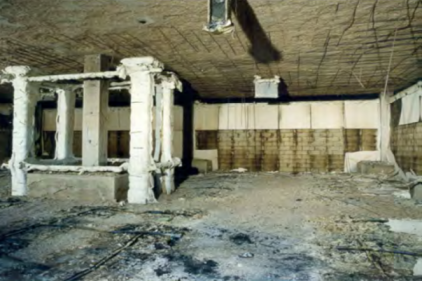Fire-induced concrete spalling
While modern, high strength concrete outperforms normal strength concrete in nearly all performance criteria, it also displays a higher propensity for fire-induced concrete spalling when exposed to severe heating.
Spalling occurs when the exposed surface of heated concrete flakes away in a more or less violent manner. Such spalling presents a serious concern in the context of the historical approach to fire safe design of concrete structures, where structural engineers typically rely on concrete’s inherent fire safety characteristics (e.g. non-combustibility, nonflammability, high thermal inertia).
It has been widely shown that the inclusion of polypropylene (PP) fibres in concrete mixes reduces the propensity for heat-induced concrete spalling, although considerable disagreement exists around the mechanisms behind the fibres’ effectiveness.
UQ Fire works on bushfires research, with a main focus on the flammability of vegetation.
UQ Fire research on bushfires include:
'Mechanisms of Fire-Induced Concrete Spalling ' completed in 2018 by Thomas Thorne (BE-ME).

